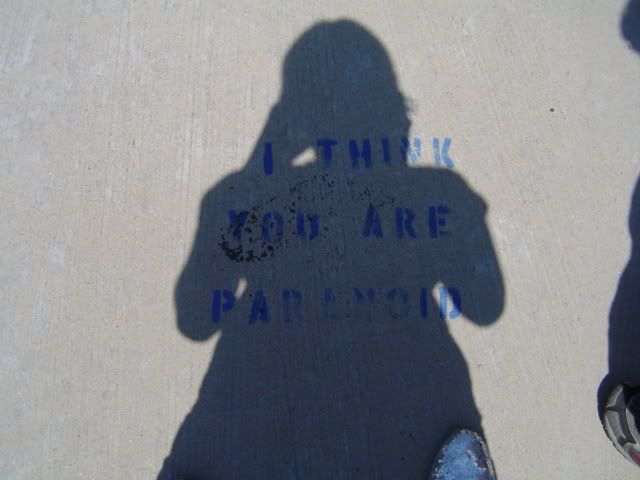Cloud and Townsend, with many years of experience as Christian counselors, have co-authored a very popular series of books centered around the idea of knowing one's boundaries. When I picked up Boundaries in Dating, my initial curiosity quickly turned into self-deprecating cynicism. Apparently I've managed to make nearly all of the mistakes the book warns against. One example of the advice it offers is to examine your own dating history (rather than ignoring it) to learn from your mistakes. I decided to buy the book so I could have an easier and more thorough record of my mistakes than any list I could make myself.
For a long time I flipped through it casually, esteeming the book no higher than a popular magazine article. These quick overviews confirmed my opinion that it had nothing new to say, and nothing very valuable to offer, because it all sounded familiar. I had heard it all before. But when I realized I needed these reminders, I started reading more carefully, and I dropped my defensive stance. I circled and highlighted certain passages, noting helpful explanations and examples of my own past mistakes. It seems they are pretty common, so I'm not as uniquely stupid as I'd feared -- just human.
This book is great because it lists common dating pitfalls, breaks them down to discuss different aspects of each, and analyzes the emotional and spiritual implications very well. All of it is written in a way that is very easy to understand. Accessibility is unfortunately rare, because a lot of psychologists and counselors are weak in this area as authors. There are many references to relevant biblical passages, but not so many that it becomes distracting.
My only criticism regards the tone, in certain places where the authors advise you to stay away from certain kinds of people. They repeatedly distinguish between "safe" and "unsafe" people, always providing lots of examples in each chapter, and many refinements of this distinction. Unsafe people are broken, unhealthy, and inevitably have disastrous relationships, so you should avoid dating them. Instead, surround yourself with safe people who will help you grow, and date only safe people.
This is good advice, but sometimes it sounds like there is no redemption for these poor unsafe people. There could have been a more sensitive approach at these points, perhaps directly addressing this low caste of dregs in the dating pool to assure them they may find healing from God. Honestly, this is why I'd felt resistant to this book for several months-- because I wasn't sure even a close reading would help me figure out how to change, or that I even could. I was just unsafe, and that would be the end of it. It was kind of hurtful. Sometimes I hate oversimplified categories.
I'll continue to read it closely to learn as much as I can, despite these limitations. It's hard to read about such a personal subject sometimes, because it can hurt if I let myself be open to it. It was far easier to maintain my distance by dismissing its validity altogether.
For those who are not Christian, this book may still be useful to some degree. If you can approach it in the generous, open-minded spirit of an anthropologist studying another culture, then this can be thought-provoking. If you don't find it ridiculous or patronizing, you might find some valuable advice, despite your disagreement with Christianity.
